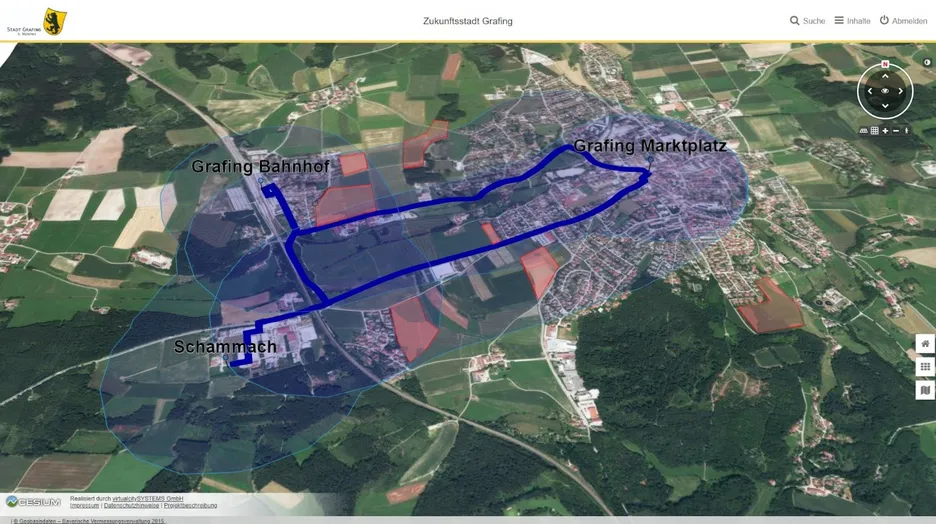PLIMOS – Planing of intermodal mobility services based on 3D city models
Project Description
The project creates a technical service for municipalities with which the use of highly automated electric shuttle buses in intermodal public transport can be planned, simulated and optimized on the basis of a three-dimensional, digital city model. On the one hand, the simulation should include a recording of the current traffic situation in order to be able to design possible future scenarios through the integration of (partially) autonomous e-shuttles and to be able to uncover traffic unbundling possibilities. On the other hand, infrastructural and socio-economic requirements for the operation of e-shuttles can be planned in the city model, such as B. Charging concepts and needs-based routing and stops. The simulation of highly automated electric shuttle buses in the virtual city model is also of interest for manufacturers of e-shuttles or for vehicle development and design in general. The research results are to be tested and validated with real test drives of a highly automated shuttle bus in the city of Grafing. The concept is to be transferred to other municipalities at a later date.
Tasks of the Chair
- Traffic data detection, traffic modeling, traffic simulation.
- Integration of the e-shuttle in the overall public transport system to implement intermodal transport.
- Inclusion of the new CityGML 3.0 standard for improved coupling of traffic simulation and semantic 3D city models, including an interface to OpenDRIVE.
